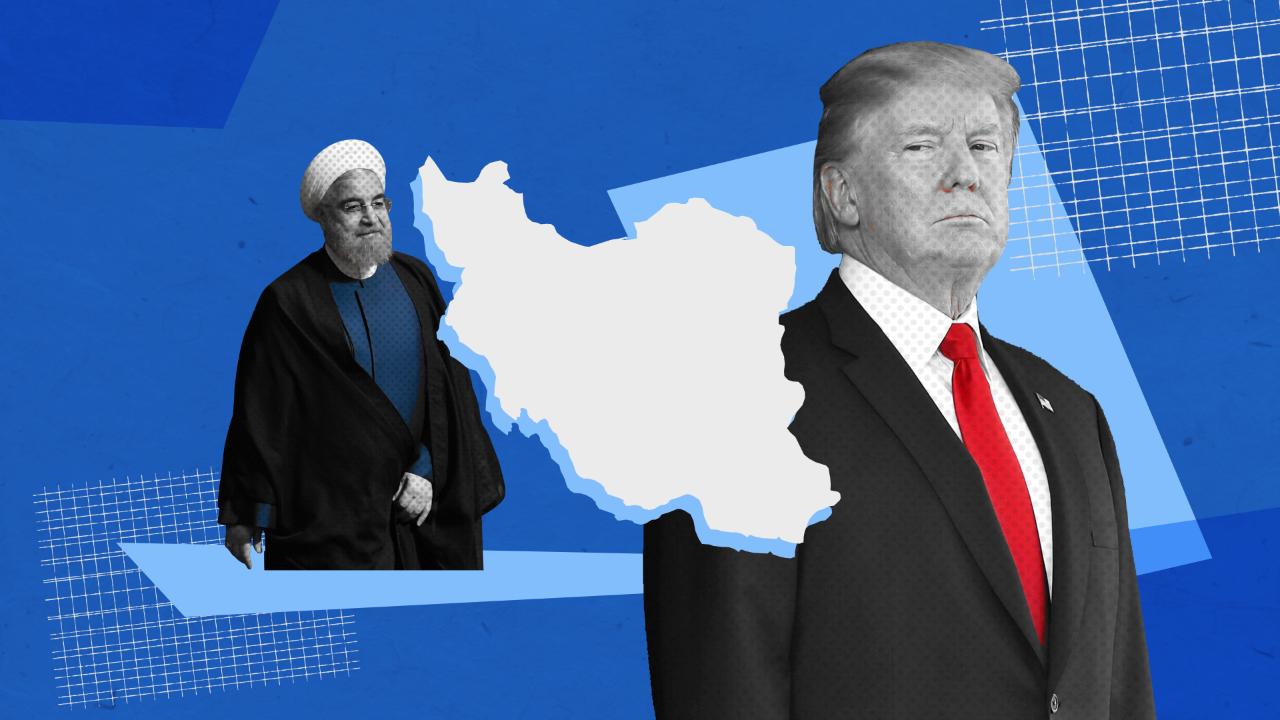
Washington Doesn’t Want Either War or Peace!
Regional crises continue to rage and Washington is satisfied with managing, but not solving, them. At the end of the day, this policy serves Washington’s goals of bleeding Russia and Iran dry and extorting Europe. After milking the region for all its worth by sucking up and recycling its natural resources, Washington shares the fruits of its labor by providing huge profits to companies and the U.S. Treasury.
The Syrian crisis is quite illustrative of these “intentional errors” in U.S. foreign policy. It began with the United States’ insistence on keeping Russia and Iran far from paths that could have ultimately resolved the conflict in its early stages. The U.S. was content to work only within the scope of the “Friends of Syria Group.” It made Bashar Assad’s removal the entry point to any political process in Syria – yet even that wasn’t the crowning demand. Rather, the U.S. also demanded Iran’s unconditional exit from Syria. It wasn’t Russia or Iran who demanded the “lion” Assad leave his den in the “People’s Palace.” Despite being isolated from the political mainstream, Russia and Iran were present and accounted for in Astana and Sochi. But the only result of this American policy – again, an intentional result – was to destroy Syria completely and to exhaust its army. This benefits Israel, while also keeping the sword of blood and exhaustion hovering above the heads of the “tsar” Vladimir Putin and the “murshid” Khamanei.* Let us not forget the tens of billions of dollars siphoned from Gulf countries, and the extortion of Europe on issues of terrorism, refugees and the danger of Russian expansion along its southern border.
Today, the ball is back in Washington’s court. But now, Washington is more inclined toward the arrogance of power and issuing political dictates, in such a way that it no longer targets America’s enemies in the Middle East and around the world. Rather, the U.S. has set its sights on its allies in Europe and throughout the region. Anyone who reads the 12 conditions that Secretary of State Mike Pompeo seeks to impose on Iran will realize without a doubt that this “policy of exhaustion and extortion” is rife among decision-makers. So, too, is the mentality of managing open conflicts rather than resolving them. Washington doesn’t want a third war in the region at all. However, it doesn’t provide any plan to solve the ongoing political crises in the region. As for the conservative right-wing thinkers in this administration, they have decided instead to escalate tension and keep the hot spots hot by adding fuel to these already white hot fires.
If Washington wanted to truly contain Iran, weaken its regional role and change the behavior and tools of its ruling regime, the new secretary of state wouldn’t have gone about it the way that he did. The way to actually contain Iran is to engage with partners and allies in the search for political options that strengthen the reformist trend in Iran. Along with efforts to create new dynamics and political processes in countries in crisis, such domestic changes in Iran would weaken and reduce its regional role. However, the U.S. chose the completely opposite path, leading away from this trend. There will be disastrous consequences, but what Pompeo calls “Iran’s submission to compliance mechanisms” will not be one of them.** These 12 points are themselves an expression of what is simmering deep inside Israeli Prime Minister Benjamin Netanyahu’s mind and instincts.
This new American approach will result in spreading and revitalizing the conservative “revolutionary” trend in Iran. Perhaps, for the first time since the Islamic Revolution four decades ago, a segment of these “disillusioned” reformists will themselves become hardline conservatives, imposing their own positions and slogans on the Revolutionary Guards and some of the ayatollahs known to hold unannounced jihadi positions.
Even more than Iran, the mostly moderate Sunni Arab countries in the region will pay the price for these policies. The explosive battlefields in the war between Iran and the United States are in many of these countries. As long as the American-Israeli conflict with Iran continues beyond Iran’s borders, it will instead be our countries, societies and people that will have to pay this costly “invoice” with everything we have – our people, our stone, our trees. As long as Washington musters its tools and paper agreements to confront Iran and keep it encircled, this strategy will be ineffective and of little value both now and for successive U.S. administrations. Imposing submission and subordination on Iran has not yet been successful. It seems almost certain that this administration will not succeed in doing so.
Unless the U.S. administration starts a war to uproot the Iranian regime at the behest of American decision-makers, or shows an intention to initiate new political dynamics and processes in countries that face ongoing and destructive crises, there will be no success. There will only be more ruin and damage in the region, and more policies of exhaustion and extortion, bleeding its adversaries and allies alike.
*Editor’s note: The word “murshid” is Arabic for guide or teacher; it is also defined as a Muslim religious teacher.
**Editor’s note: Although accurately translated, it appears that the author was paraphrasing or summarizing remarks by Secretary of State Pompeo.

